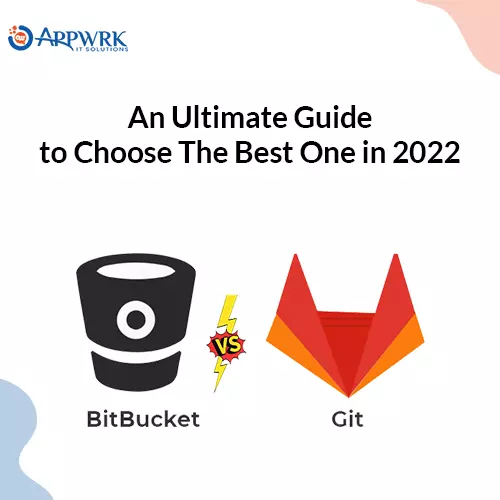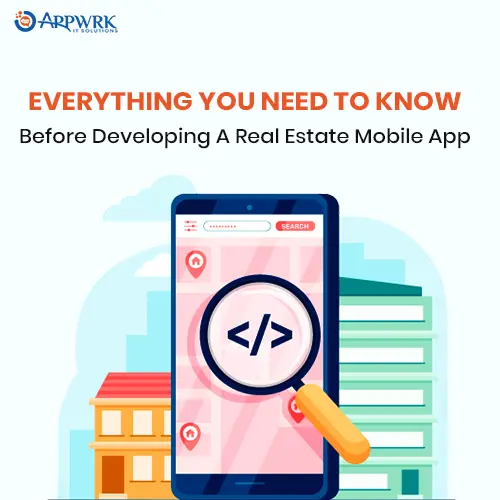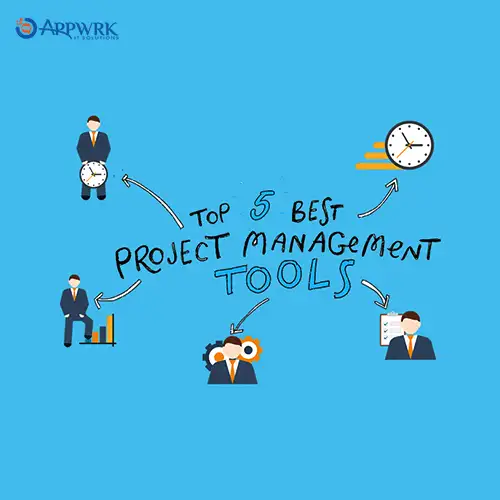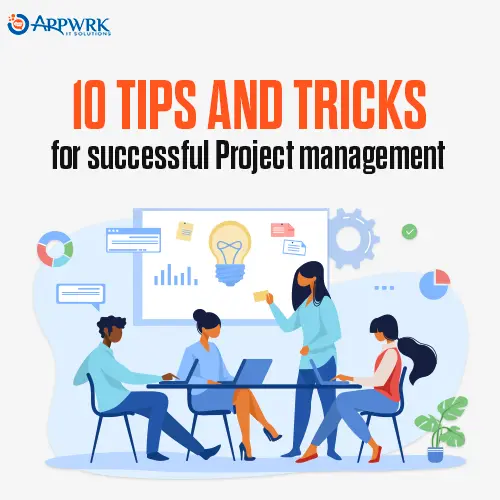Real Estate Tokenization: The Future of Real Estate Assets
Do you know global commercial real estate investment hit an unprecedented height of US $800 billion this year? Isn’t it interesting? Real estate is the most liquid asset, and requires more entailing and long transaction processes and significant capital commitments. Everyone is wondering how to keep the real estate transaction safe if it continues to occur digitally. With the digitization of real estate assets, things are quite easier to manage. The term we use for it is “Real Estate Tokenization”.
In recent years tokenization is gaining traction in the real estate sector. Many of you have just heard this word. Still, most of you are unaware of how tokenization is a fastly developing area in the financial industry that allows investment in digital tokens backed by real-world assets and securities. We have come up with this blog to provide you with an entire overview of Real Estate Tokenization.
We will cover these topics under tokenization in real estate:
- What exactly does it mean?
- What is the need for it?
- How does it work?
- What is its future?
However, we’ve already become habitual in signing and sending forms electronically; the next phase is all about ensuring every step of the process is protected. Hence “ tokens” come into play.
As a part of many digital interactions, we have already used tokens in various forms, including online banking. Check your bank statement online; You’ll notice that every transaction has a long unique number, and this number distinguishes the transactions from each other with the same payee and amount. This number is called a token in digital language.
Let’s learn everything you need to know about real estate tokens and the process of tokenization.
What is Real Estate Tokenization?

Real estate tokens are the finite number of representative tokens used to distribute property ownership. While tokenization is the process of converting real estate assets into several virtual real estate tokens. Further, selling these tokens on an online marketplace where the purchaser of a particular real estate token owns that portion of the asset.
As discussed above, every real estate token represents direct ownership of an asset. So at the time of tokenization, these assets can be a share in a company owning real estate, a piece of real estate, or else participation in a real estate investment fund or anything else. Hence, with the help of tokenization, property purchasers can do transactions digitally using real estate tokens instead of the traditional way of paper documentation.
The motive behind tokenization is to secure real assets; that’s why it is also called security tokens. Like securitizing an asset means dividing it into shares; the same way tokenization means splitting an asset into real estate tokens (shares), representing a particular share of the underlying asset.
Let’s take an example:
Suppose you want to tokenize a 500,000 sq ft property that’s worth $50M. If you divide the property into 500,000 shares, each share represents one square foot of the property and is valued at $100. While in tokenization, you divide the property into square inches, and each real estate token would be worth $0.69.
Obviously, the second option of tokenization makes the property accessible to a wider range of investors. You might choose to limit the share offering such as 20% in order to raise funds for a new wing or renovations. Now the next step is to sell the real estate token to investors. Hence we can say that real estate tokenization acts as company stock. The process here is similar to crowdfunding, but here real estate tokens are involved, which are available on the blockchain.
What is Blockchain?
Blockchain is a technology of recording information( electronically in digital format) in such a way that it is improbable to cheat and hack. Hence blockchain is a distributed database shared among the nodes of a computer network. In cryptocurrency, it is known as bitcoins. With this blockchain technology maintaining a secure and decentralized record of transactions is efficient and easier.

As tokenization works on blockchain technology only, so your real estate tokens are highly safe and secure.
Types of Real Estate Tokenization
- Commercial Tokenization– It is the process of tokenizing the ownership of commercial properties with legally-compliant protocols.
- Residential Tokenization– It is the process of tokenizing the fractional ownership of residential real estate for investors, asset owners, developers and institutions.
- Trophy Tokenization– It is the process of tokenizing real estate assets that are typically iconic buildings in prime locations with strong real estate underpinnings.
Assuming that you understood the concept of real estate tokens and the process of tokenization, now let’s move on to cover why we should go for tokenization of our assets.
What Problems Can Real Estate Tokenization solve?

– Liquidity of Real Estate
Tokenization solves the biggest issue of real estate which is the liquidity of the asset. In the traditional way, various parties are involved in the legal transfer of assets, while tokenization simplifies buying and selling properties. It omits the middle man and allows owners to be transferred directly from investor to investor.
– Proof of Ownership
Legal ownership is displayed through legal documents that show the ownership right of the new investor. However, in tokenization, a distributed ledger is consensually shared and synchronized across multiple sites and accessible by multiple people. Any changes in the ledger are copied to all participants in a matter of seconds. Each transaction is sent and validated to mitigate any issue arising from various ownership claims.
– Easier searching of properties
Another issue that is solved by tokenization is the quick search for the property in which you will invest. If the real estate assets were tokenized, they could be listed in one centralized marketplace. Hence it eases the investor’s job because now the search for a potential investment to take place in one location. Through this possibility, investors will have access to search for potential investments located in other geographical areas and also allow sellers to gain access to more potential buyers.
– Increased Transparency
The distributed ledger on which real estate tokens are stored, not only helps mitigate the issue with undeniable proof of ownership but also helps improve transparency in the real estate market. Along with high transparency, you will achieve full security by digitizing your asset. As discussed earlier, tokenization is backed by blockchain technology, so there is no doubt about security because blockchain is a proven technology regarding security.
– Breaking the Entry Barrier for Small Investors
The traditional system wouldn’t handle the volumes small investors would bring in. Hence, the marginal costs are sometimes higher than marginal revenue, resulting in economic loss. But in tokenization, as assets are divided into smaller amounts, and the transactions take place in a virtual environment, the barrier of entry to smaller investors has reduced. Along with that, real estate tokenization enables investors to invest in real estate without the headache of the daunting legal process of transferring ownership.
– Making Life Easier
As compared to the traditional legacy financial systems, using blockchain technology, the transactions are faster and cheaper with no middlemen involved. Additionally, the feasibility of automatically collecting renters’ payments and distributing them to real estate token holders has seriously made life easier.
– Decreasing Transaction Cost
Tokenization significantly lowers transaction costs because it uses blockchain technology for exchanging tokens. These real estate tokens enable investors to sell and buy property without incurring the traditional closing costs. Although real estate investment trust (REIT) provides a similar value proposition, it involves upfront fees and requires a high minimum investment.
How does Real Estate Tokenization work?

Firstly, it is essential to understand what a real estate token represents. The real estate token is simply a digitized share. It has the same economic rights as any other share. A real estate token can represent an ownership of the collateralized debt, an equity interest in a legal entity, a portion of the deed, or any other form of asset regarding real estate.
With tokenization, sponsors complete the required steps to allow private or public trading of the real estate tokens or else offer investors the opportunity to exchange their shares with tokens of another entity that has done with those regulatory steps. Once the investor’s share is tokenized, it is then recorded digitally on a blockchain and can be further sold on secondary markets through the ATS. It is up to investors they can choose to sell all or part of their interest. Even they can also opt to hold onto their real estate tokens for the entirety of the investment hold period. In this case, investors then receive their share of distributions throughout the investment lifecycle similar to that of a non-digital share.
To simplify the whole process of tokenizing a real estate asset, we have divided the entire process into five stages. Let’s discover those stages.
Processes Involved in Real Estate Tokenization

Stage 1- Deal Structuring
It is the initial phase wherein various factors play a significant role such as asset type, shareholder type, jurisdiction, and the applicable regulations. Generally, issuers opt to tokenize an existing deal to enable liquidity for current investors before raising funds for launching new development. The owner of the asset determines the specific property or properties to digitize.
Stage 2- Digitization ( Legal Structure)
In the digitization stage, information traditionally stored in paper or document form is uploaded to the blockchain. This information is coded in smart contracts, and security tokens are issued. In other words, we can say that the digitization of real estate requires a legal wrapper around the individual property to securitise and create an investment vehicle.
The most common structures we have seen to date are
- Single asset Special Purpose Vehicle (SPV) –In this structure, tokens represent shares of the SPV. This type of structure is just for qualified institutional buyers or accredited investors.
- Real estate fund – It is basically a private equity fund that invests in a portfolio of properties, and the real estate token here represents units in the fund. The accredited investors or qualified institutional buyers can only leverage the tokenized fund interest.
- Project finance – Tokenization is a very efficient way of raising funds for projects. In this case, tokens are made available to retail investors and accredited investors.
- Real Estate Investment Trust (REIT) – However REIT is costly to operate but has one big benefit that is they are available for retail investors. REIT investors can create digitized shares in a REIT, and real estate token holders have the same rights to operating income from the REIT that traditional investors have today.
Stage 3- Technology Selection
Once the deal structure or legal structure is made, it’s time to take a few technology decisions. The four major decisions you have to make are as follows:
- Selecting Blockchain / Token – select the blockchain on which to record the token, and decide which data and transfer restrictions to be added to your real estate token.
- Custody – a secure custody solution is needed that can safely store real estate tokens.
- KYC/AML verification of the investors is required, and digital securities can be offered to prospective investors.
- Primary / Secondary Marketplace – where do you want the digital securities to be offered to the prospective investors either via primary issuance or the leading secondary exchanges. This decision predicts the success of the capital raise and the ability to access the liquidity for investors.
Many big operators started creating their own marketplace by utilizing AlphaPoint’s Exchange technology.
Stage 4- Distribution and Marketing
This phase revolves around token creation and distribution. For buying digital real estate tokens, different payment methods are accepted, such as cryptocurrencies, stable coins, fiat currencies, etc. To store the real estate tokens, a digital wallet is needed for the investors, which is available on both the web and real estate mobile. These real estate tokens can be sold to investors by conducting a live sale.

- Primary Distribution- It is the process wherein exchange for investment capital tokens is distributed to investors, and their information is recorded on the digital ROM.
- Post-Tokenization Management- It involves corporate action management processes, including shareholder voting and dividend distribution. These processes can be automated by smart contracts coded on the token. Post-tokenization management will continue until maturity or redemption.
- Secondary Trading- In secondary trading, the value of tokenization in enhancing liquidity is realized. Here a real estate token holder can trade tokens with another investor on an exchange or in an over-the-counter arrangement.
Stage 5- Post Support
The real estate software development company provides additional support to the investors such as mortgage issues, tracking all the activities of the real estate token holders regularly, the formulation of a corporate code, and dealing with legal issues. We hope you understand all processes of tokenizing the real estate asset.
Let’s cover the main benefits of tokenization.
Top Benefits of Real Estate Tokenization
– Fractionalization
Tokenization lowers the barrier to entry for investment in assets that have large upfront capital requirements. The interests in the asset to be more readily divided across a wider pool of investors, thus democratizing access to the asset. The fractional ownership is securely managed by a digital register of members (ROM) on the blockchain.
– Operational Efficiency
‘Smart contracts’, the programmable actions on the blockchain facilitate the automation of various processes such as investor whitelisting, compliance checks, and post-issuance matters, including dividend distribution.
– Flexibility
One of the biggest advantages of real estate tokenization is that anyone can invest a certain amount and become a partial property owner and benefit from the profits generated. The real estate token holder can easily sell these tokens on the secondary market at higher rates. Without any doubt, tokenization is a better option for crowdfunding as it provides the user with instant digital ownership.
– Reduction in Fraud
As the transaction is recorded digitally on blockchain technology, it cannot be altered by anyone. Hence tokenization provides more trust and confidence in the minds of real estate investors.
– Reduced Settlement Time
In tokenized products, transactions can be settled more fastly as compared to traditional finance transactions. Tokenized transactions can be settled almost instantly, unlike the days and sometimes weeks in traditional ones.
Real Estate Tokenization is the future of Real Estate Assets
With the tokenization of real estate assets; the market conditions are rapidly changing. Now access is no longer limited only to the elite groups of investors. Investors can efficiently move their funds, and asset owners can more effectively manage their equity. Many other points favour real estate tokenization which will prove that it is the future of real estate assets. Let’s cover some major ones.
- It enhances the conventional real estate industry by ensuring better market transparency, reliable tracking of ownership, rendering more liquidity opportunities, and enabling real-time investing processes.
- As real estate tokens can be swapped in real-time, hence it opens up new possibilities for ambitious and creative real estate ventures.
- Tokenization of real estate is competent with other prominent fundraising alternatives such as venture capital and private equity.
- Technological and economic elements of tokenization have been effectively handled in Europe, the United States, and portions of Asia.
- Tokenization is expected to yield a revenue of $4.2 billion for the global real estate industry in the next 5 years.
All these points prove that real estate tokenization is the future of the real estate. This process comes with more flexibility, high security, and awesome flexibility compared to the traditional model of dealing with properties and investors.
EndNote:
The whole world is already keeping an eye on cryptocurrencies and NFT and is astonished by their benefits of high security and high flexibility in dealing with your assets digitally. Now this time, blockchain by blockchain developers has provided great opportunities to real estate owners facilitating ‘Real Estate Tokenization’. In this blog, we have covered almost everything which you must know about the tokenization of real estate and how tokenization offers vast liquidity solutions with its unique features. Blockchain technology is the backbone of the digitization of real estate assets. A blockchain development company provides you with hassle-free tokenization solutions for your properties by ensuring a reliable tokenization platform.
About The Author











 Free Quote
Free Quote
















































